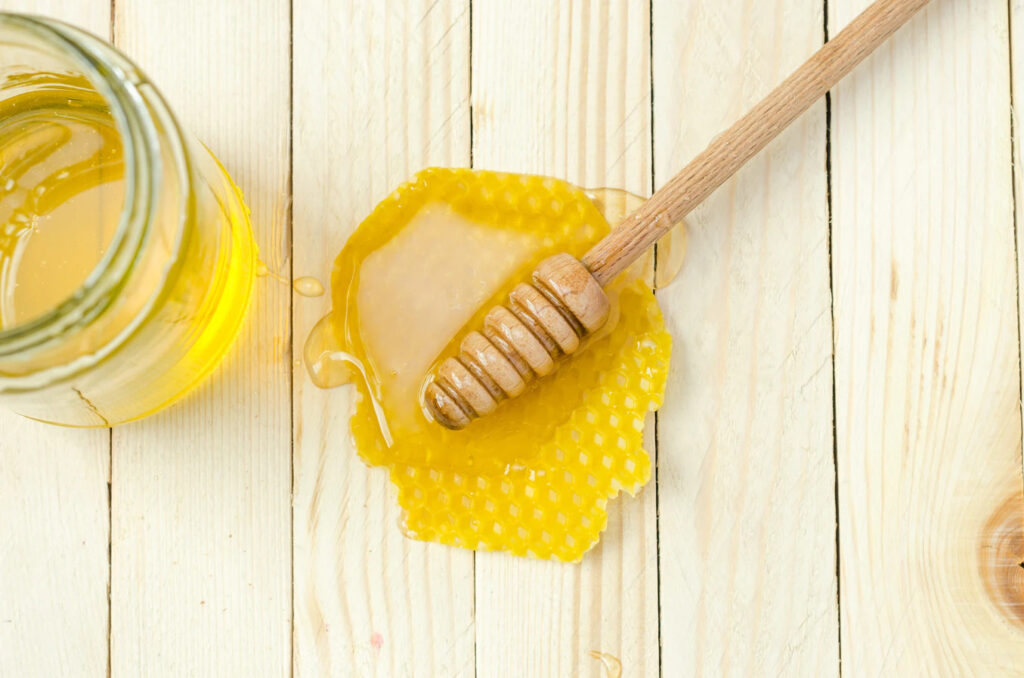You have probably heard about how, if bees were to go extinct, it would lead to the destruction of mankind itself. Why do you ask? Well, bees are major pollinators that help sustain plant life which in turn, sustain us. If that isn’t alarming enough, then perhaps imagining that sweet, sweet honey to cease existing would make us take action.
On that (not so) happy note, we listed down some of the surprising health benefits and uses of honey to remind you why we absolutely cannot let these darling honey-makers go extinct.
Why is honey healthy?
Besides being sweet, honey contains nutrients that your regular sugar cubes fail to provide. Another reason why honey is a better alternative for sweeteners is the fact that you can incorporate it into a lot of dishes, but still enjoy the treat straight from the jar! Why, isn’t it a little strange to gobble up sugar alone?
Honey of high quality is rich in antioxidants including organic acids which studies have shown to lower the risk of stroke, heart attacks, and even cancer! Moderate consumption of this thick, delectable syrup is also linked to improvements in cholesterol levels. It has been reported to significantly reduce bad cholesterol while simultaneously increase good HDL cholesterol. To top all that, its power to also lower triglycerides makes it an even better candidate than sugar for all your sweet cravings!
If we are talking about high-quality honey, we can’t leave out New Zealand which is a true paradise for bees, honey, and honey lovers! Interestingly, more than $5 billion agricultural revenue of the “paradise of the Pacific” depends on bee exports. There is this honey called manuka from New Zealand which is said to be an excellent antiseptic. If you ever get burned and blood even comes oozing out, clean it, slather some Manuka honey, and eat the rest from the jar to feel happy.
So besides being an excellent treat and treatment to your cravings and wounds, respectively, what are other uses for honey?

Honey can be used for?
As treatment for wounds and burns
Since Ancient Egypt, honey has been a mainstay in dressing up wounds and healing burns. With its antibacterial property, honey sterilizes the wound and promotes healing. It also leaves less scarring, reduces pain, and even wound size. For deeper cuts, however, it is still best to have professional intervention before dumping a jar of honey on your skin.
As a skincare remedy
It is no surprise that honey would be one of the best skincare ingredients. The high supply of antioxidants alone is already a good sign. What’s more, is that its antibacterial properties are excellent for healing the skin in case of break-out or any other inflammation. It’s also a good exfoliator, removing dead skin cells that are always unwelcome in your skin.
You can say goodbye to acne and other skin conditions such as eczema or psoriasis with the application of raw honey, or even better, Manuka honey. Remember to do some patch tests to ensure no allergic reaction would occur before creating a soothing, sweet honey face mask.
Acid reflux prevention
The wonders that honey has extends to the digestive system. If you suffer from acid reflux, honey’s antioxidants that remove free radicals and its anti-inflammation properties can soothe the esophagus and help bring that sneaky acid down to the stomach. Its texture has also been said to coat the esophagus lining better, thus contributing to much longer relief.
Memory enhancement
There are some claims that honey makes you smarter. This is because honey is said to improve both long-term and short-term memory. One study involving menopausal women and post-menopausal ones recorded significant immediate memory improvement. Another benefit that can be gained by honey’s rich antioxidant supply!
Cough and cold relief
Honey has been recognized as a treatment for cough and cold, especially for children. The World Health Organization (WHO) recommends it as a natural remedy for cough. Studies suggest that the intake of honey, especially Manuka honey for a cough, helps soothe a sore throat, reduces night-time cough, and improves children’s sleep. Just remember never to administer honey to children under one year old as some of its properties may cause food poisoning and botulism in infants.

